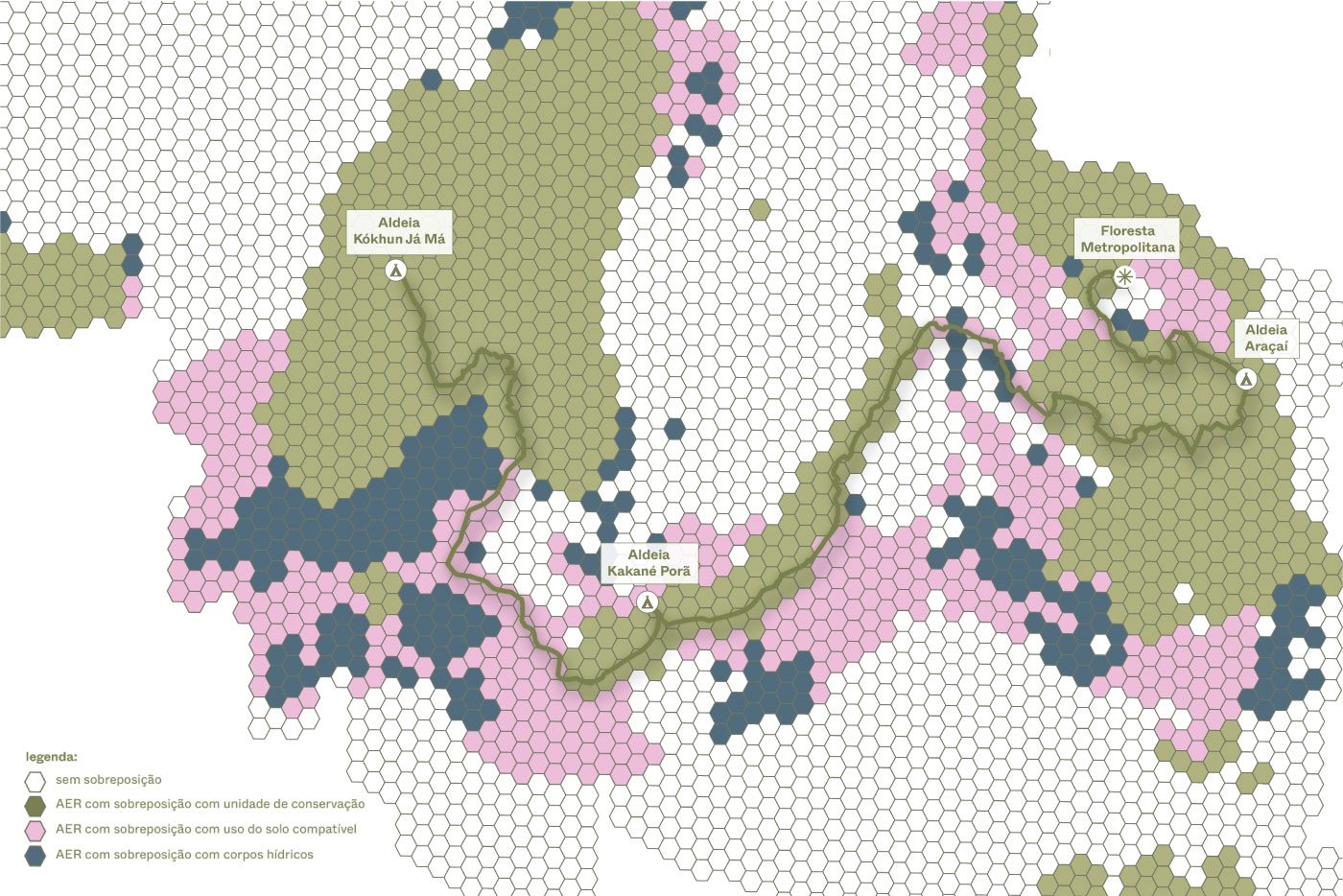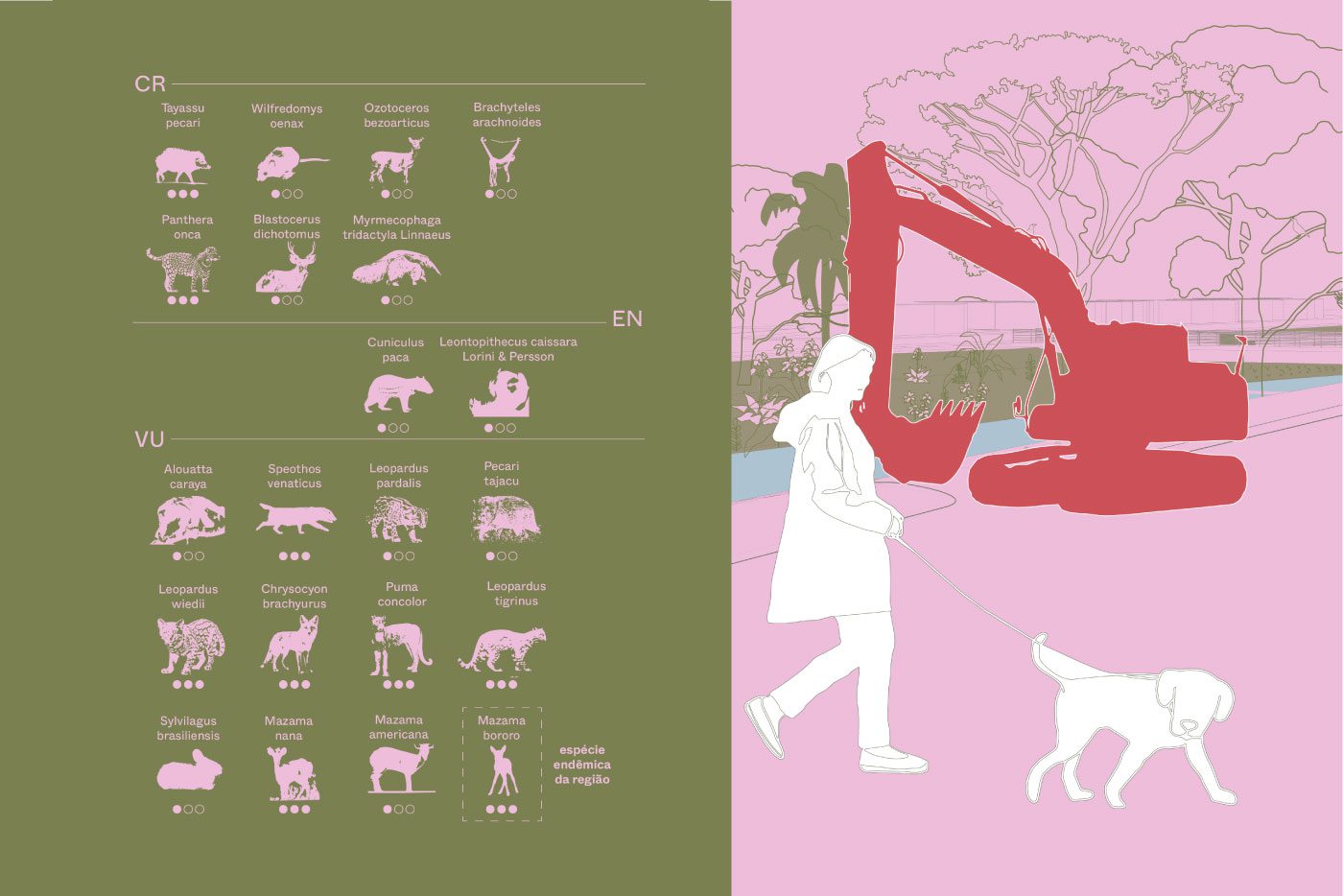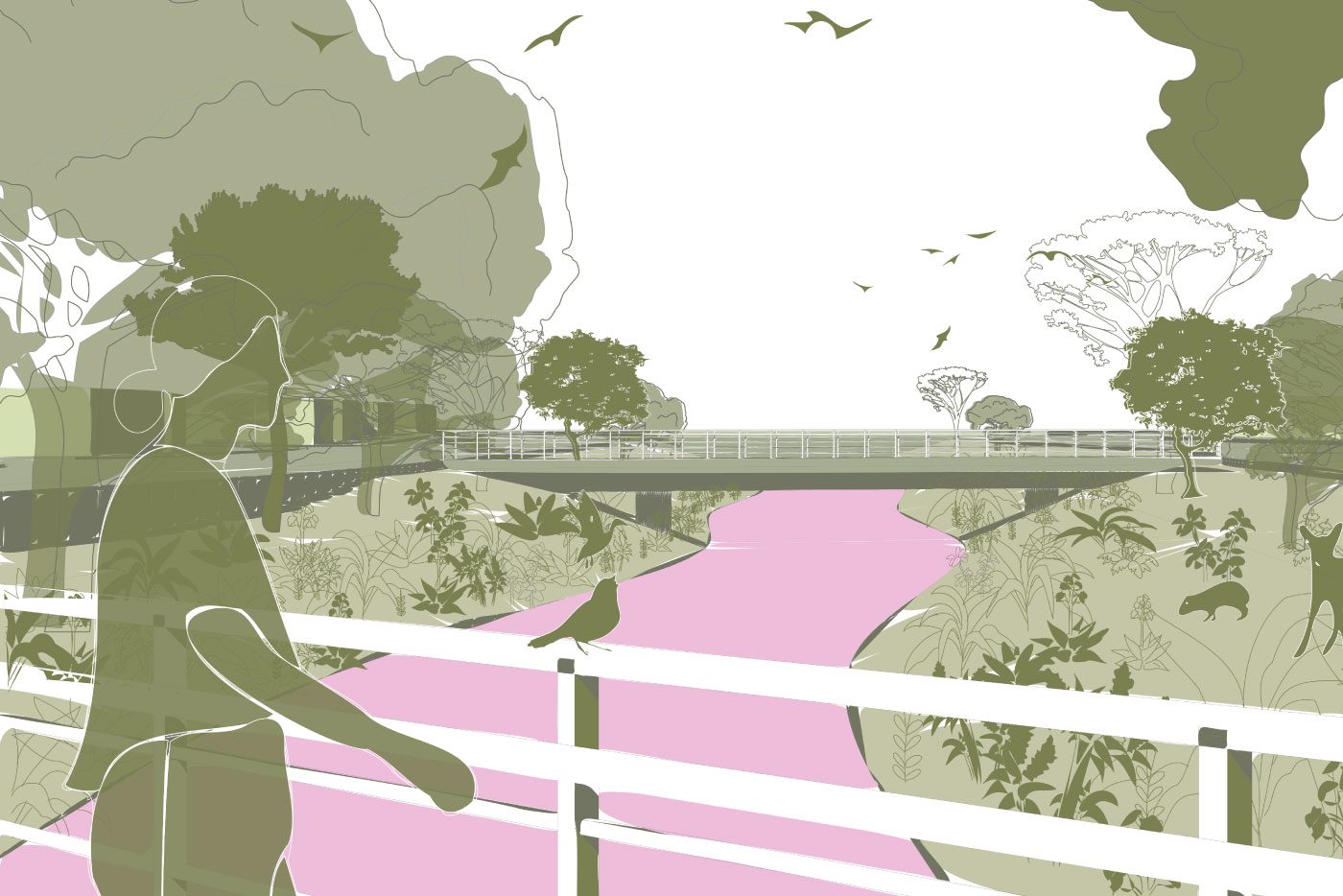Project implementation: Brazil
Project development: Brazil
Students: Amanda Moreira Barchi and Marcelo Caetano Andreoli
When reflecting on ways of living in modernity, we come across how anthropocentric logic directly impacts our relationships, especially with the city. The role of Architecture and Urbanism in reproducing and reaffirming this logic, fueled by the divide between nature and culture, becomes clear.
Climate change, biodiversity loss, and countless natural disasters alert us to the path of destruction we are setting for the earth and, consequently, for ourselves. We need to rethink many of our actions with the land and recognize the important struggle of traditional and rural peoples, who have shown and taught us other ways of configuring urbanities. This reinforces that not all humans subscribe to anthropocentric logic, but rather the urban human. Multispecies design emerges here as a possibility for rethinking the design process, understanding cities as spaces inseparable from nature and focusing on traits that go beyond human exclusivity. Understanding the relationship between humans and non-humans is a crucial point of the work, thus confronting the boundaries developed between nature and culture—and all their derivatives, such as countryside and city, forest and city, rural and urban. With this, the work shifted to developing an ecological corridor route connecting indigenous resistance territories in the Curitiba Metropolitan Region (RMC), reaffirming the commitment of the field of Architecture and Urbanism to contributing to the habitation of other species and other urbanities. After defining the ecological corridor route, we approximated an area with greater intensity of anthropogenic conflicts on the drawing scale to develop a route that considers the habitation of other species, shifting the direction of attack: the city no longer encroaching on the environment, but rather creating space for it to penetrate its fabric and for new relationships between humans and more-than-humans to be established in the territory.




